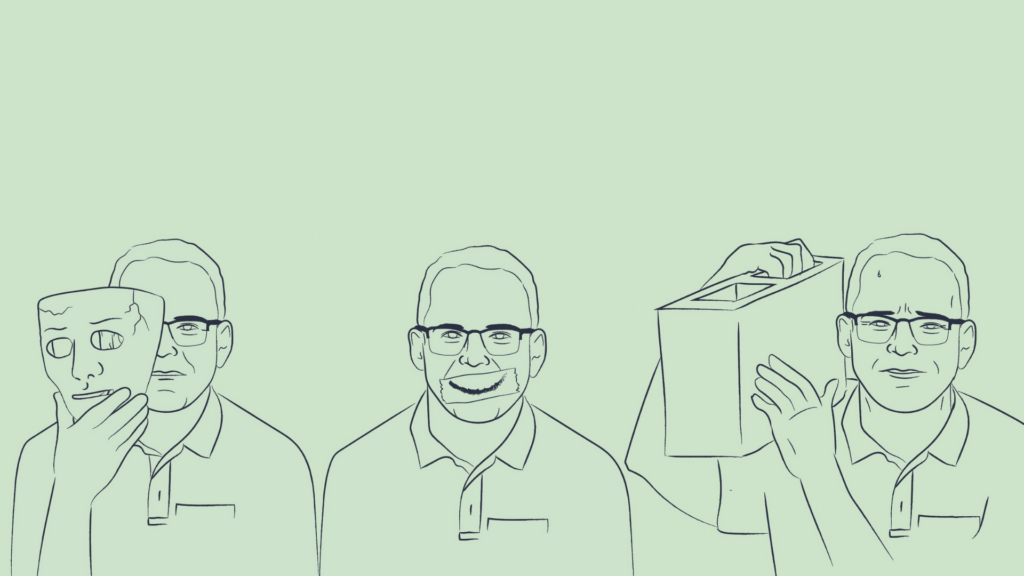

For those with particular stresses in one area of their wellbeing, this can throw other aspects of their balance off-kilter. Imagine someone who is fulfilled socially, financially, and physically, but is suffering immense stress at work which puts their emotional health at risk. This is often the case with lawyers.
As The Law Society of South Australia notes, surveys on mental health from across the globe have reported that depression and other psychological issues are comparatively high amongst the legal profession. Being Well in the Law, a report from The Law Society of New South Wales, NSW Young Lawyers, and Australian National University, states that “solicitors and barristers exhibit higher levels of psychological distress and disproportionately higher experiences of depression than members of the general population.”
Why is this? On the surface, lawyers present as successful, intellectually stimulated people who take immense pride in their work. To the outside population, they ‘have it all.’ Yet this very pride and the subsequent facade a lawyer presents could be instrumental as to why we are seeing higher rates of mental health issues amongst legal professionals.
The revered Australian report on depression in the legal sector, Courting the blues: attitudes towards depression in Australian law students and legal practitioners, by Sydney University’s Brain and Mind Institute in conjunction with the Tristan Jepson Memorial Foundation, illuminates this. It concludes that lawyers are hesitant to seek support with mental health and that they question the effectiveness of mental health professionals. The survey found that even if lawyers were faced with depression, some would not seek help.
Grant Pritchard, President of In-house Lawyers Association of New Zealand, believes that there are entrenched traits within lawyers which can make it harder for them to be vulnerable. He calls them the Five Ps.
Our first P is Power Dynamic. Lawyers bear significant power and responsibility in upholding the law, and that can sit like a weight upon one’s shoulders. The reality is that lawyers work in the business of risk, and can be laser-focused on meeting client needs and never letting their clients down. When a lawyer loses a court case or is unable to prevent their client from exposure to specific legal or business risks, it can be hard for them to simply go home at the end of the day and forget about this. Another power dynamic affecting lawyers is in their interpersonal relationships at work – especially within the legal team itself. The team dynamic and culture can be a significant risk factor or protective factor for individual lawyers within the team. It is really important to create an equitable, positive and high-trust culture for everyone in the team, regardless of their role or position.
Power can become ego, which leads us to our second P, Persona. Lawyers are typically required to present an aura of confidence, authority (and potentially combativeness, as the situation requires). Sometimes at work it can feel like you need to wear a mask, and this can get in the way of being genuine and honest about how you’re really doing. This mask is especially strong for lawyers, and it can get in the way of us asking for help early or accepting that we have human needs and limitations.
This brings us to our next P, Personality. Although lawyers are working in the realm of risk, fear, and consequence, they can feel like they need to maintain a positive outlook and persona, a ‘we can do it’ mentality for their clients, despite the doubts or challenges they may be facing.
Things break under too much Pressure, which is our next P. The responsibility we discussed earlier comes hand in hand with an immense pressure; to win, to predict risk, to be a superhero. Mitigating risk means thinking in the mindset of the worst possible outcome, the what ifs. Knowing the potential ramifications a client is exposed to intensifies the personal pressure upon the lawyer to deliver. Some level of stress and pressure is healthy, but we need to take a considered approach to this so that we can maintain performance without lawyers burning themselves out.
Perfectionism, our final P. Lawyers are often Type A thinkers, they like to be armed with all relevant information to any matter, ‘winging it’ will not suffice. Yet this very desire to triple check every semicolon does not always serve the lawyer, it can cause anxiety over their work. Perfectionism is a double-edged sword – helping lawyers to create high-quality work, but also potentially harming their wellbeing if not kept in check. It is critical that lawyers get a better handle on what ‘good enough’ looks like, and letting go of unhealthy perfectionism is key to this.
Wellbeing should not be seen as separate from being a lawyer. Compartmentalizing our mental health and failing to see the inextricable links between our work life and wellness can undermine our wellbeing at work and home. Comprehending how the Five Ps impact us as lawyers, allows us to take ownership and make changes that foster better wellbeing. As Being Well in the Law frames it “compartmentalizing wellbeing turns mental health and wellbeing into an individualized problem, implicitly assigning responsibility and liability to the person as a ‘sufferer’ (or, worse, having the person reduced to a diagnostic label).”
If we better understand and address the individual, team and organizational risk factors and opportunities for our lawyers, we can start intentionally creating healthier relationships with each other and with our work. This starts with listening to our people and creating a culture where we acknowledge that legal work can be stressful and high-pressure, being more aware of how our legal training and traits can impact our wellbeing, and empowering our people to look after themselves and look out for the people around them.


